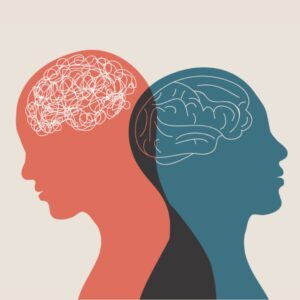Cognitive Behavioral Therapy Hospital Hebbal, Whitfield, Bangalore, Gurugam in Delhi
Cognitive behavioral therapy (CBT) is a type of psychotherapy that focuses on helping people identify and change unhelpful thinking patterns and behaviors. CBT is based on the idea that our thoughts, feelings, and behaviors are all interconnected, and that negative thoughts and behaviors can trap us in a negative cycle. CBT can be used to treat a variety of mental health conditions, including depression, anxiety, eating disorders, and substance abuse. It is also effective for managing chronic pain and other physical health conditions.
If you’re looking for effective cognitive behavioral therapy (CBT) in India, you’ll find many options in various locations. In Bangalore, Hebbal stands out as a hub for healthcare services, and you can find reputable Hospitals that provide psychological treatments. These hospitals in Hebbal provide specialized treatment programs developed for each patient’s needs, helping patients manage and overcome a wide range of mental health challenges.
There are other therapies apart from CBT. Exposure Response Prevention for OCD, Acceptance Commitment Therapy, Dialectical Behavioral Therapy (DBT) for Borderline Personality Disorder, Mindfulness Based Cognitive Therapy for Chronic pain Hospitals in Whitfield, that provide comprehensive mental health care.
Gurugram and Delhi, being major urban centers, boast multiple Cognitive behavioral therapy hospitals. These hospitals are equipped with experienced CBT practitioners who guide patients through the process of understanding and managing their thoughts and emotions effectively.
Whether you’re in Bangalore, Whitfield, Gurugram, Hebbal, or Delhi, you can find high-quality cognitive behavioral therapy hospitals to support your mental health journey. These hospitals are dedicated to providing effective CBT treatments that help patients lead healthier and happier lives.

Cognitive Behavioral Therapy (CBT) – Benefits, Effects and Steps
 What is Cognitive Behavioral Therapy (CBT)?
What is Cognitive Behavioral Therapy (CBT)?
![]()
Cognitive Behavioral Therapy (CBT) is an effective treatment approach for a range of mental and emotional health issues including depression, anxiety, and substance abuse. CBT aims to help a person identify and challenge negative thoughts and to learn practical strategies. These strategies are designed to bring about positive and immediate changes in the person’s quality of life.
 Who can benefit from CBT?
Who can benefit from CBT?
![]()
CBT is used to treat a range of psychological problems including:
- Anxiety Disorder, such as social phobia, obsessive-compulsive disorder or post-traumatic stress disorder
- Depression
- Low self-esteem
- Uncontrollable anger
- Irrational Fears
- Addictions, such as smoking, drinking or other drugs
- Eating Disorders
- Iinsomnia
 How effective is CBT?
How effective is CBT?
![]()
- It is one of the most effective treatments for conditions where anxiety or depression is the main problem.
- It is the most effective psychological treatment for moderate and severe depression.
- It is as effective as antidepressants for many types of depression.
 Steps in CBT
Steps in CBT
![]()

Identify troubling situations or conditions in your life.
These may include issues such as a medical condition, divorce, grief, anger or symptoms of a mental illness.

Become aware of your thoughts, emotions, and beliefs about these problems.
This may include observing what you tell yourself about an experience (self-talk), your interpretation of the meaning of a situation, and your beliefs about yourself, other people and events.

Identify negative or inaccurate thinking.
To help you recognize patterns of thinking and behavior that may be contributing to your problem, you may be asked to pay attention to your physical, emotional and behavioral responses in different situations.

Reshape negative or inaccurate thinking.
You will be encouraged to ask yourself whether your view of a situation is based on the facts or on an inaccurate perception of what going on. You may have long-standing ways of thinking about your life and yourself. With practice, helpful thinking and behavior patterns will become a habit and won’t take as much effort.

